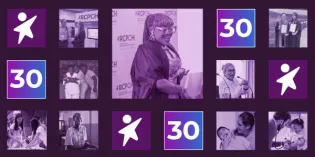
The conflict, now in its third year, has intensified, with devastating consequences for children’s health and wellbeing. Over 15 million children are now in urgent need of humanitarian assistance. More than 5 million have been forcibly displaced, making Sudan the largest child displacement crisis in the world. All while health systems are collapsing under the weight of conflict and displacement and access to essential services is severely restricted.
Famine conditions have been confirmed across the country, while disease outbreaks, including measles, cholera, and malaria, are surging. In April alone, over 20,000 children were admitted for treatment of severe acute malnutrition, and more than 9,200 measles cases were confirmed.
Despite the efforts of humanitarian organisations, the needs far outpace available resources. We call on the international community to take urgent and coordinated action. This includes:
- ensuring sustained and unimpeded humanitarian access across all regions of Sudan
- supporting efforts to restore and strengthen Sudan’s health system and significantly increasing funding for health, nutrition, and protection services for children
- taking leadership in diplomatic efforts to end the violence and protect children from further harm.
The College also notes that this crisis comes in the context of significant cuts to the UK Official Development Assistance. The College has previously stated its opposition to these cuts and the crisis in Sudan further illustrates the urgent need to reinstate UK Aid to its original target of 0.7% GNI.
We stand in solidarity with our paediatric colleagues in Sudan and across the region who are working under extraordinary conditions to save lives. We also recognise the courage of families and communities striving to protect their children amid unimaginable hardship.
|
This statement builds on our earlier call to action issued in March 2024, where we warned of the devastating impact of the conflict on Sudanese children. Sadly, the situation has since deteriorated further. Our current decision-making framework for criteria for evaluating when and how to respond to global crises currently considers principles such as the College’s mandate and institutional remit, impact or opportunity for the College to respond meaningfully, and whether the College has available resource to support a response. If the College is responding to a particular crisis, it does not comment on named individuals but more broadly on the welfare of children and young people and healthcare workers. You can read our full position statement on working in fragile and conflict-affected states. |







